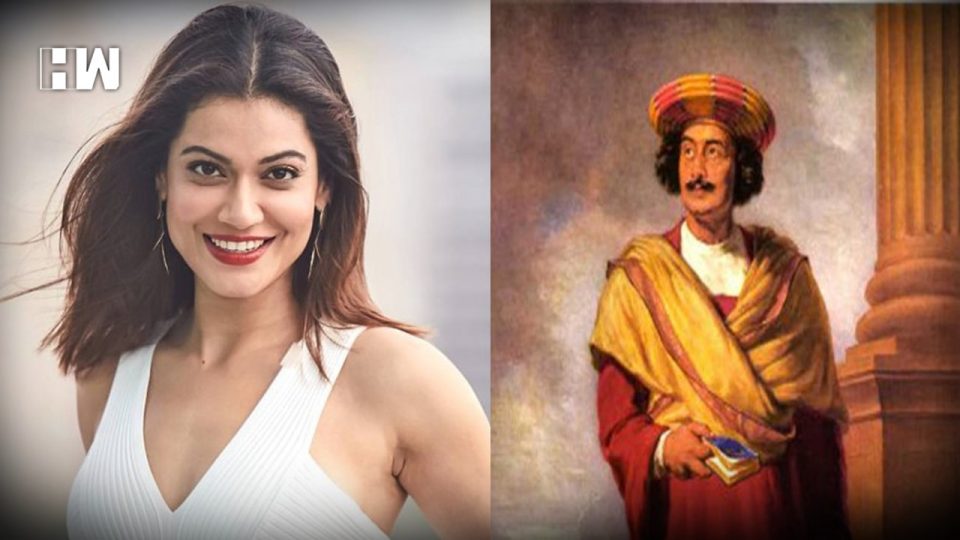A Twitter user yesterday commented on the contributions of the ‘Father of the Indian Renaissance’ Raja Ram Mohan Roy to the Indian society.
Calling him a ‘chamcha to the Britishers’ she sparked outrage when she called Sati an ‘optional act’.
“No he was a chamcha to Britishers who used him to defame the Sati tradition. Sati tradition was not compulsory but was introduced to prevent the prostitution of Hindu wives by the hands of Mughal invaders. It was the woman’s choice. #FeministsofIndia Sati was not regressive”, her tweet said.
No he was a chamcha to Britishers who used him to defame the Sati tradition. Sati tradition was not compulsory but was introduced to prevent the prostitution of Hindu wives by the hands of Mughal invaders. It was the woman’s choice. #FeministsofIndia Sati was not regressive https://t.co/sALLK2lALF
— PAYAL ROHATGI & Team -BHAKTS of BHAGWAN RAM (@Payal_Rohatgi) May 25, 2019
Raja Ram Mohan Roy is known to be instrumental in carrying about the Sati abolishment in India.
Sati was an act of self-immolation carried out by the wives in the funeral pyre of their husbands.
Rohtagi’s tweet upset many users and slammed her for her views on the tradition. While most slammed Rohtagi, others highlighted his contribution to Indian society.
Soon, she was trending.
I feel aghast reading justification for Johar and #Sati Are we really debating these issues now?? What are we attempting to do here? Rewrite history or just some cheap publicity? Utterly disgusting
— Supriya Shrinate (@SupriyaShrinate) May 27, 2019
BJP leader Subramaniam Swamy also stepped in into the feud,” She is factually correct about Sati. Chamcha is not appropriate word since the British did not want to abolish Sati—they believed it might stir Hindus to revolt”
: She is factually correct about Sati. Chamcha is not appropriate word since the British did not want to abolish Sati—they believed it might stir Hindus to revolt
— Subramanian Swamy (@Swamy39) May 28, 2019
A user wrote, “West Bengal records highest number of human trafficking cases in India, nearly 45% of the all India figure. Most minor girls trafficked form villages and sold to kothas…but let’s discuss sati which was banned 200 years ago”.
West Bengal records highest number of human trafficking cases in India, nearly 45% of the all India figure.
Most minor girls trafficked form villages and sold to kothas…but let’s discuss sati which was banned 200 years ago.
— Vanara (@AgentSaffron) May 27, 2019
Another wrote, “Characters like payal r*htagi are bogeys created to exhaust and disorient you. she says ‘sati is ok’ and you feel the moral obligation to fight. meanwhile, smaller, more insidious acts of hatred are normalised and you lose perspective because for you, the benchmark is now sati”.
characters like payal r*htagi are bogeys created to exhaust and disorient you. she says ‘sati is ok’ and you feel the moral obligation to fight. meanwhile, smaller, more insidious acts of hatred are normalised and you lose perspective because for you, the benchmark is now sati.
— harnidh (@PedestrianPoet) May 27, 2019
A user tried to get National Commission for Women to send her a notice.
“The Commission of Sati prevention Act 1987 bars the glorification of Sati with a punishment upto 7 years of imprisonment. National commission for women should take suo motto action and file a legal complaint against this degenerate”, the user wrote.
The Commission of Sati prevention Act 1987 bars the glorification of Sati with a punishment upto 7 years of imprisonment.
National commission for women should take suo motto action and file a legal complaint against this degenerate. https://t.co/gCtoXGByDO
— Zed (@ZedsDeadb) May 26, 2019
Sati, was a choice women made, in an lost battle, over honour or be sex slaves for life! No wonder women of that bygone era chose honour n committed Sati! It requires strong will power to choose death over life!
— Rukmani Varma (@pointponder) May 25, 2019
Payal Rohtagi has been called out in the past for her opinions too.
As an independent media platform, we do not take advertisements from governments and corporate houses. It is you, our readers, who have supported us on our journey to do honest and unbiased journalism. Please contribute, so that we can continue to do the same in future.

